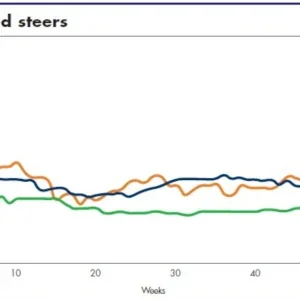The Bayer Group expect to see an increase in their operating result from continuing operations in 2003. ‘To achieve this, we are relying mainly on the steps we have taken to improve our earning power’, the chairman of Bayer’s Board of Management, Werner Wenning, told the spring financial news conference in Leverkusen – although a precondition, he said, is that the present economic situation does not radically deteriorate. He regards the development of sales and operating result in the first two months of 2003 as encouraging and as grounds for cautious optimism.
The Bayer CEO described 2002 as ‘a year of transition’. The targets set for realigning the group were reached. Bayer delivered on their goals and in some cases exceeded them. ‘I am convinced that our realignment has given us an excellent foundation for future success’, he said.
He said he was not satisfied with the business trend in 2002. The adverse economic environment, high one-time costs connected with the acquisition of
Aventis CropScience (ACS) and a large number of restructuring measures all had an impact on the operating business. Sales from continuing operations declined by 1% to €29 billion, while the operating result before exceptional items fell by 46% to €989 million. Net income, on the other hand, rose 10% to €1.1 billion. A major factor here was the proceeds from the extensive program of divestments.
Programs to improve efficiency show results
Bayer’s industrial business was hit in 2002 by the economic situation, exchange rate fluctuations, falling prices and increased raw material costs. Polymer sales fell 2% to €10.8 billion, although the operating result before exceptional items was held at €418 million, the same level as the previous year. ‘This was an indication of the success of our extensive programs to improve efficiency, which already produced significant savings in 2002’, said Wenning.
Chemicals saw sales fall by 12% to €3.3 billion; the operating result before exceptionals declined by 41% to €160 million. Account should be taken, he said, of the situation at subsidiary H.C. Starck, which suffered especially from the slump in the electronics industry. Excluding H.C. Starck, the decline in the operating result for Chemicals pre-exceptionals was only 2%, while sales fell 9%. This shows the action taken in Chemicals, too, is bearing fruit.
Bayer’s top priorities for the current year are to improve performance and resolve strategic issues. This includes strictly implementing the efficiency improvement programs, which will bring planned savings of €500 million in 2003 alone, streamlining the investment program, and further optimising current assets. It is planned to bring down net debt, which was already reduced to €8.9 billion last year, to about €7 billion by year end.






